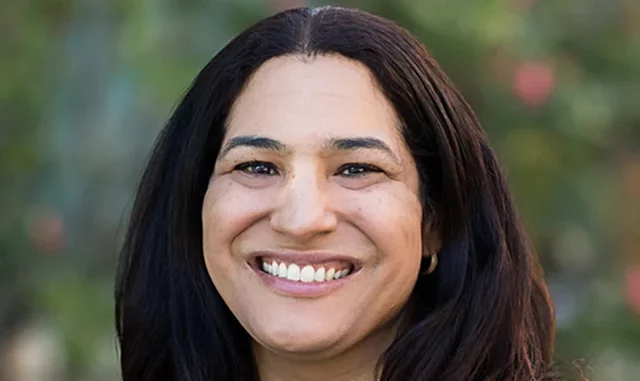By Dayna Long, MD
Nurture Connection’s August Newsletter featured a profile on BLOOM: Black Baby Equity Clinic as an inspiring example of how a clinic is centering the Black family experience in Early Relational Health (ERH). BLOOM is an initiative of the UCSF Benioff Children’s Hospital Oakland, cofounded by Dayna Long, MD, and Javay Ross, MD, pediatricians at UCSF Benioff Children’s Hospital Oakland’s Primary Care Clinic.
For most of my life, I have never had the opportunity to receive medical care from a Black doctor. My three Black sons have never had the privilege of being treated by a Black primary care pediatrician, someone who looks like them and shares their experiences of being Black men in America.
As a Black faculty member at an academic health center, I have witnessed the detrimental effects of racism and discrimination on the well-being of Black-identified individuals. I am acutely aware that Black people in our country have been denied access to healthcare, have their pain disregarded, receive unequal treatment, and endure numerous other injustices.
As physicians, we have patients come to us at their most vulnerable times, and they count on us to hear them, support them, and step up to help. But history has shown that Black patients not only can’t count on that basic support but also face structural racism and discrimination that lead to significant inequities in their care. And that has very real repercussions.
These inequities, particularly during crucial developmental stages, can trigger a cascade of biological processes that undermine both physical and mental health throughout a person’s life.
In the Bay Area, Black infants face a significantly higher risk of being born prematurely or being underweight before their first birthday. According to the California Department of Public Health, in the San Francisco Bay Area, Black babies are two to three times more likely to be born prematurely or die in their first year, compared with white babies. Across the country, statistics show that Black women are two to three times more likely than white women to die during pregnancy, labor, and within a year of childbirth. Scientific evidence indicates that these healthcare disparities are caused by structural racism and discrimination within healthcare settings, leading to substandard care, a lack of dignity and respect, and outright denial of care for Black patients.
As the mother of three Black sons, I feel my fear for my son’s physical and mental safety is a constant ache that I carry with me. I dread the frequent instances at school in which they are called the Nword. Knowing that they hear classmates tell “jokes” about Black people makes me shudder. They are typically the only Black students in their AP classes. I feel cold fear run down my spine when a police officer drives past my car, and I wish my sons were invisible. Experiencing racism always hurts.
Although I often hear of strategies that want to promote anti-racism, I have not heard of radical solutions to build beloved communities in academic healthcare institutions that actually are interventions to advance racial health equity. This summer, our team at UCSF Benioff Children’s Hospital Oakland launched a program that is trying to address that. With the introduction of the BLOOM: Black Baby Equity Clinic, we are working toward transforming into reality prioritizing Black representation in the care of children. By matching Black pediatricians and a team of lactation consultants, community health workers, nurses, and mental health clinicians with self-identified Black families and their babies, both doctors and patients will finally have the chance to see themselves reflected in each other and experience a more trustworthy, inclusive, and equitable healthcare experience in a clinic. Utilizing a racial concordant healthcare model that centers cultural competence and shared experiences fosters our vision to see every Black baby grow into a healthy and flourishing adult.
Racially concordant pediatric primary care plays a pivotal role in building trust and strengthening relationships between healthcare providers and Black children and families. A shared racial background creates a sense of familiarity, reducing the potential for mistrust and invisibility. This facilitates open and honest communication that empowers families to share their concerns, seek guidance, and actively engage in decision-making processes toward the care that we deserve. I look forward to a future in which both my sons and my patients are treated with dignity and love in order to heal the wounds from generational racial trauma and improve health.
Dayna Long, MD, is a pediatrician with special interests in community health and engagement, and in promoting equity in healthcare. Her goal is to enable every child to be as healthy as possible by eliminating the inequities that lead to poor health outcomes for many families and young children. Dr. Long earned her medical degree from the George Washington University School of Medicine and Health Sciences.
